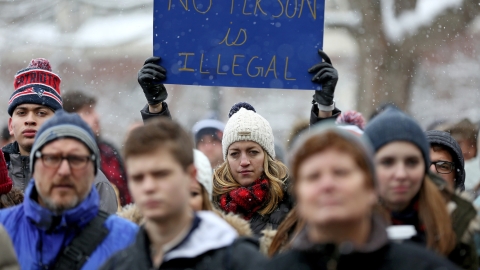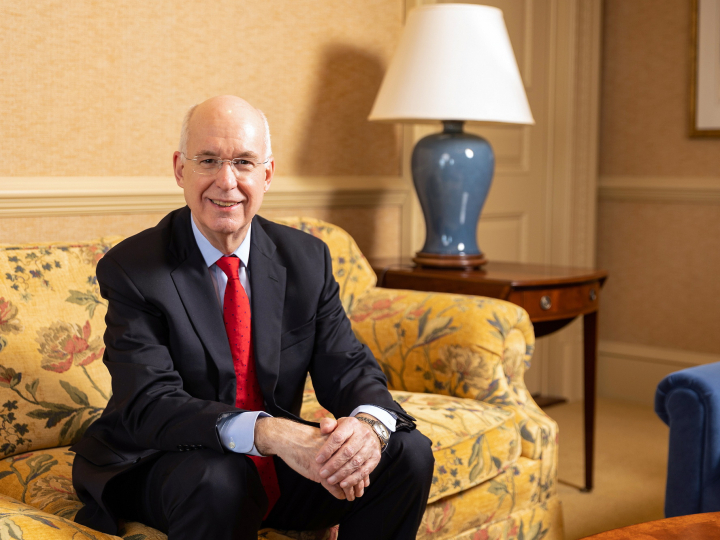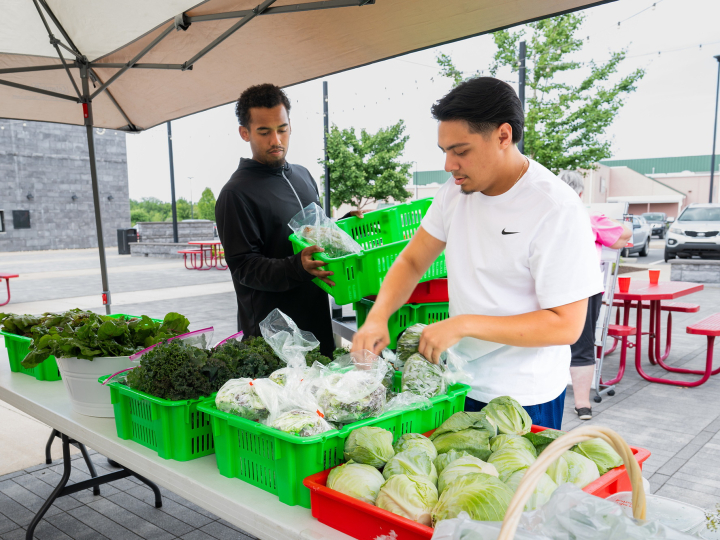
A Season of Action
April 6, 2017
Campus and community members gathered to express support for immigrants and refugees. Photo by Emily Paine
Rallies and teach-ins are a response to decisions made by the new presidential administration
Spring semester is always an active time on Bucknell’s campus, but this year “activist” is also an apt descriptor.
President Donald Trump's executive order on border security and immigration on Jan. 25 sparked a candlelight vigil in support of immigrants, quickly organized by the Chaplain's Office. With a snow-shrouded Rooke Chapel as a backdrop, about 100 faculty, staff, students and local residents gathered to hear members of the chaplain's staff speak out for unity and justice, holding hands and singing as darkness fell.
A larger, well-organized event with its own Facebook group, Walkout for the Locked Out, occurred Jan. 31. On a snowy afternoon in front of Bertrand Library, rally leaders used a bullhorn to address a peaceful crowd of about 250 faculty, staff and students. With signs reading "No person is illegal" and "No ban, no wall, equality for all," participants stood and chanted, "This is what democracy looks like" and "No hate. No fear. Immigrants are welcome here."
The rally was followed by a series of well-attended faculty- and staff-led teach-ins with topics such as Fascism 101, What is Islam? Christianity in the Age of Trump and The History of Immigration and Exclusion.
A second event that drew many participants was the Day of Action, Feb. 17, held in conjunction with a nationwide strike coordinated by Strike4Demoracy as a day to defend constitutional liberties. About 150 people gathered in front of Bertrand Library for a rally that emphasized that the University is a site of critical thinking about public issues at this point in the nation's history.
"This day is all about sharing your knowledge as part of the necessary resistance in this country," noted one speaker. A student whose parents are Mexican immigrants made the point that "immigrants keep the country running. … People united will never be defeated. The fight never stops."
Following the rally, the first segment of about two-dozen hourlong faculty-led teach-in sessions were held in buildings throughout campus. Topics included What Happens When We Lose the Public in Public Schools? Is Our Future Sustainable? and Climate Change: Chinese Hoax or Reality? Many sessions drew 40 or more participants. The second set of teach-ins was followed by a rally on Malesardi Quad and an opportunity to call, write or fax U.S. Congress members. Rally speakers emphasized that conservatives were welcome to attend all activities.
Some of those organizing the large campus events were supporters of the student-led group Bucknell Alternative Delegation, which formed in mid-November in response to the election of Donald Trump.
Some more modestly attended public actions have also taken place in front of the library this semester. Among them was a Feb. 9 reading of Coretta Scott King's 1986 letter opposing Jeff Sessions' appointment as a federal judge. Sessions was confirmed later that day as U.S. attorney general.
Since Feb. 15 three professors, three staff members and one student have gathered for about 20 minutes on weekday mornings, holding signs that address concerns about climate change. According to one participant, Sabrina Kirby, this is not part of a larger effort. The group "wants to personally acknowledge the urgency of the problem of climate change and make a locally 'invisible' problem more visible."
Though Bucknell is not known historically as a hotbed of student activism, there have been surges. The Vietnam War era was perhaps the most activist time in the University's history, but protests against apartheid in the 1980s, sweatshops in the 1990s and in support of Black Lives Matter in recent years have brought out students, faculty and staff supporters.

